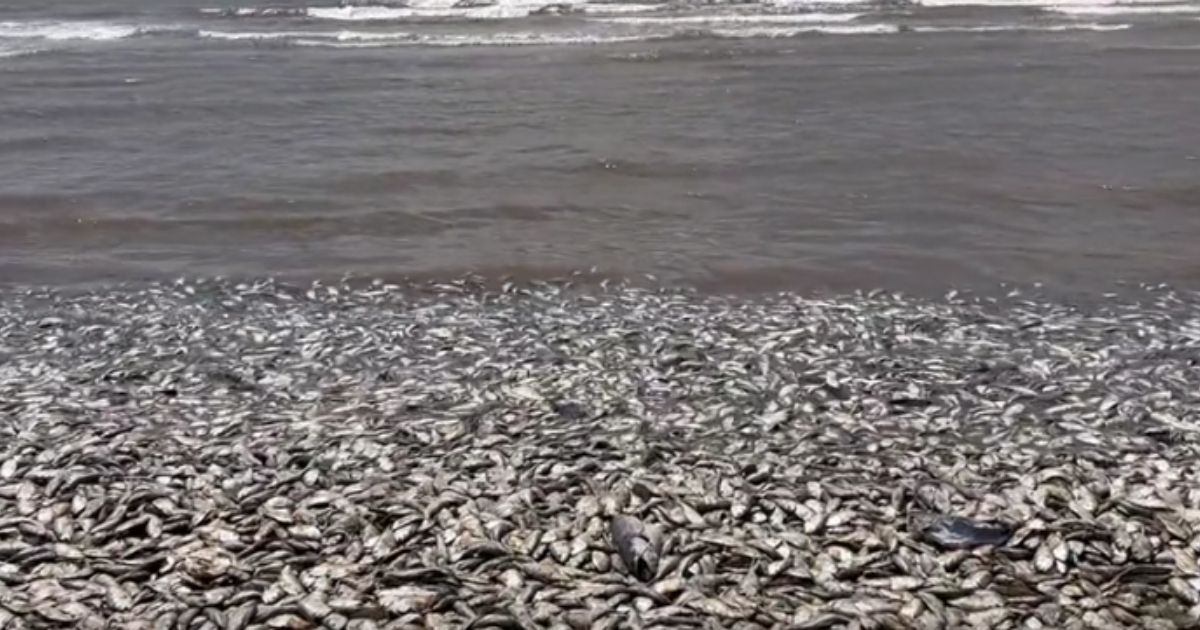Thousands of dead fish washed up on a Texas coast recently, baffling locals as to what may have caused such an event.
Officials, however, were quick to point to a possible cause.
Last Friday, Texas resident Darrell Schoppe posted a video to Facebook showing what looked like thousands of dead fish on the shore of Quintana Beach near Freeport, Texas just south of Houston.
[firefly_embed]
[/firefly_embed]
In the post, Schoppe said that he was at the beach that morning to catch some speckled trout, but his plans changed when he saw the dramatic scene on the beach.
He went on to say that the dead fish came from the mouth of the Brazos River and covered the shoreline “for miles”.
Texas Parks and Wildlife Department investigated the troubling scene and concluded that a “low dissolved oxygen event” had occurred, according to a report from local news affiliate KSAT.
So, the fish died from a lack of oxygen in the water due to a combination of rising June temperatures and lower-than-normal wave action.
“Fish kills like this are common in the summer when temperatures increase … Daily variations in dissolved oxygen concentration are attributed to photosynthesis and aerobic respiration,” officials from TPWD said.
Katie St. Clair, Sea Life Facility Manager at Texas A&M University, said that events like this are natural and not that uncommon.
“Hypoxia is when we have lower than normal, dissolved oxygen in the water are very common in the summer,” St. Clair said in an interview with local news affiliate KWTX-TV.
“As we get these warmer Gulf water temperatures, the water itself has less capacity to hold dissolved oxygen, which of course is really important and essential for the fish and other animals to breathe,” she continued.
Brazoria County officials, where the event occurred, said that they understand people’s reactions.
“It’s still alarming to see that, [and] just because it’s a natural occurrence doesn’t mean it’s necessarily a pleasant one,” said Bryan Frazier, Brazoria County Parks director.
The increasing summer temperatures contribute to this shocking event, according to Frazier.
“That’s kind of the perfect storm to combine that it can really produce pockets in the water, where the oxygen dissolves,” he explained.
I’ve never seen something like this ??
— Ny Riavo Voarintsoa (@nyr_voarintsoa) June 11, 2023
Frazier also said that the parks department has been working to bury the deceased fish in sand dunes along the beach to reduce the smell. “We’ll clean them up. Our parks [department will] get those up [and] get those beaches back to being clean, so that people can get back and enjoy [those] beaches.”
This article appeared originally on The Western Journal.
























